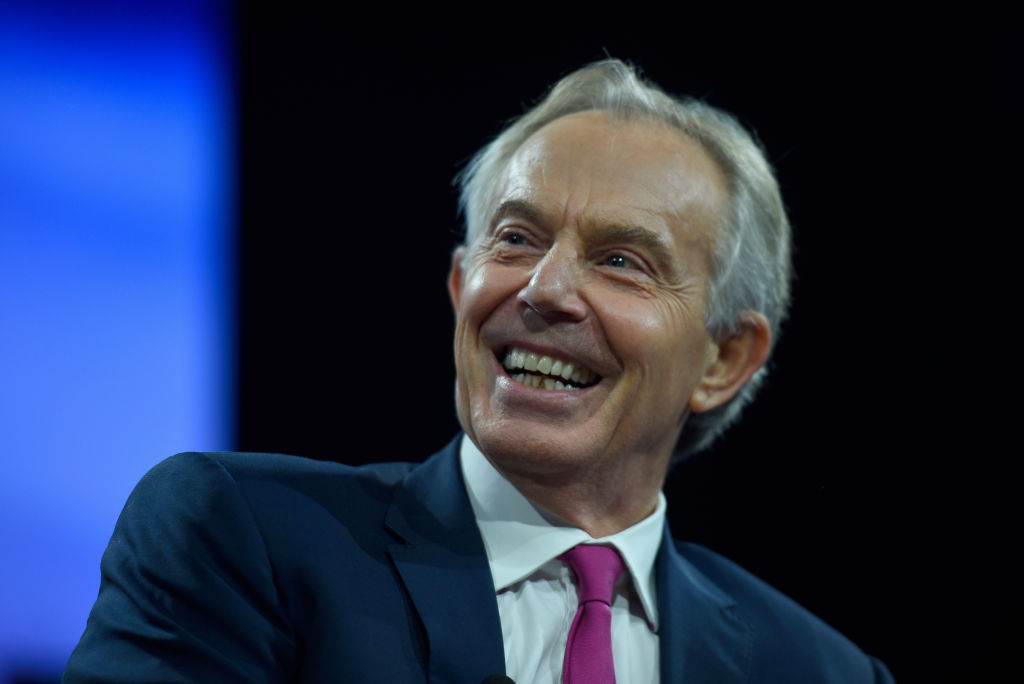Tony Blair’s message for voters on Brexit is becoming more and more shrill. His latest stark warning is that:
‘2018 will be the year when the fate of Brexit and thus of Britain will be decided. 2017 was too early in the negotiation. By 2019, it will be too late.’
The point Blair misses is that 2016 was the year ‘the fate of Brexit’ was decided, and it is difficult not to think that with each pronouncement fewer and fewer people are listening (Blair has an approval rating of –50, according to YouGov). The former Prime Minister – in the news again this morning having denied reports he told the Trump team they had been spied on by British intelligence – popped up on the Today programme to persuade voters it is not too late to change their minds about the referendum. His performance is unlikely to make any one have a rethink.
What Blair calls his ‘simple’ argument is that democracy doesn’t just begin and end on one day. Yes, he says: I accept that 17.4million people wanted out of the European Union. But that was in the past, and his argument now is that as the reality of Brexit becomes clearer, those Brexit voters might be persuaded that leaving the EU isn’t actually what they wanted after all.
To make his argument, he said that Brexit was already doing damage, suggesting, for example, that staff shortages in the NHS were getting worse and that these were attributable to Brexit. This doesn’t ring true with the facts: in reality, the number of EU doctors working in the NHS is actually up year-on-year between June 2016 and 2017, and the number of nurses from the continent has barely changed (from 20,907 last year to 20,618 this year). Blair also suggested that Brexit was having a wider effect, harming Britain’s economy and pushing up the price of goods. What he didn’t mention is that Britain’s economy is actually continuing to grow, inward investment is up and employment is at record levels. The Project Fear prophecies have failed to come true. It’s here that Blair’s problem is exposed: even if you take him at his word that he ‘accepts entirely the result of the 2016 referendum’ his determination to halt Brexit means he is increasingly looking more and more desperate as he scratching around for anything to make his point.
It is also difficult not to conclude that Blair would reject his own arguments if he was still Prime Minister. He says that two years on from the referendum voters are entitled to change their mind. This begs the question whether he would have applied the same logic to his own referenda which granted devolution to Scotland and Wales.
While Blair also seems to have thought long and hard about stopping Brexit, it is clear that he is still not sure what the alternative should be. He failed to rule out a third referendum on the issue and suggested that Brexit could be the focus of a general election. Yet what last summer’s snap poll seemed to show is that most voters now accept Brexit and want to move on. Brexit was the dog that didn’t bark in the June general election. Why would things be different if another general election were held?
Failing this, Blair suggested, a second referendum would do. If voters were to change their mind, he said, they could ‘decide whether the terms the government have secured are preferable to the existing European membership’. Yet if Blair really does respect the referendum result, this should never be the choice on the table: Britain has voted to leave – rejecting the ‘existing European membership’ that Blair is so keen to cling on to.
Blair also made the questionable claim that Britain is perfectly entitled to revoke Article 50. In fact, Article 50 makes no mention of whether this is possible or not – and even those who would want Britain to back out of leaving the EU remain split on whether it is possible to take back the Article 50 notification. How can Blair be so sure that the European Union would allow Britain to do this?
Finally, Blair made the argument that Brexit is proving to be a big distraction. He has a point here. But as Theresa May knows only too well, democracy does have the habit of getting in the way. Whether Blair likes it or not – and it is clear that he really doesn’t – that is not a reason to ignore voters.







Comments